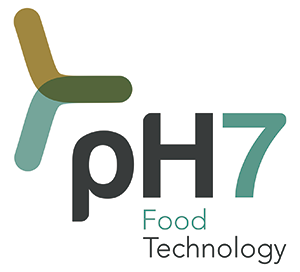Additives are present in any type of food we can imagine.
Without them, today it would be impossible to consume many of the products that are part of our diet. Whether to preserve what we eat in better condition for a longer time or to improve its texture and flavor, additives are an essential ingredient in our foods.
But at the same time, its use is increasingly controlled by the food authorities, in order to guarantee the safety of consumers.
That is why it is vital for companies to adapt properly to the corresponding legislation, depending on the country of origin and the place where they are going to export their products.
This is not an easy task, due to the large number of existing regulations in the world.
At PH7 we work to avoid this problem, looking for personalized solutions for our clients and adjusting the formulas so that they comply with the legislation established in each country.
The complex world of additive legislation
In order to facilitate international trade, there are organizations working to unify standards of additive use worldwide.
But there is still much to be done, because apart from common policies, countries can apply their own additional rules.
This means that when a company considers selling its products abroad, it is often confronted with a whole tangle of rules regarding the use of additives.
Furthermore, these standards are not always easy to interpret, making it even more difficult for food companies.
European regulations on additives
At PH7 we formulate our additives based on European legislation, as this is the legislation that applies in Spain.
Specifically, it is Regulation (EC) No 1333/2008 of 16 December 2008 that sets out the guidelines for food additives.
This standard marked a turning point in the industry, as it was a major step towards a common model in all European Union member countries.
The text details the permitted additives, their maximum levels and the foods on which they may be used.
For a product to enter this European white list, it must meet a number of requirements:
- Pass the necessary tests to demonstrate that its consumption is safe for health.
- Prove that its use is necessary to improve the qualities of food.
- That does not mislead the user, thinking that he is consuming an ingredient with characteristics that do not conform to reality.
Codex Alimentarius, towards global harmonization
We have already seen the European legislation, but there is another set of rules intended to achieve even greater homogenisation, this time at international level.
This is the Codex Alimentarius. A total of 188 countries – practically the majority of the world – are part of its commission, as you can see in this link..
Many states take the Codex Alimentarius as a reference when drafting their own legislation, in order to simplify trade and protect the health of their people.
But this body is not only helpful to governments. It also makes life easier for the quality departments of food companies.
Therefore, if you are going to export your products to other regions of the world, at PH7 we can inform you about the additives and their permitted limits that are listed in the Codex Alimentarius.
Expert Committee on Additives JECFA
There is another body that also monitors food safety.
This is the Joint Expert Committee on Food Additives (JECFA), which is jointly chaired by the World Health Organization (WHO) and the Food and Agriculture Organization (FAO).
Its purpose is similar to those above: to evaluate the safety of food additives. However, in this case its mission is more to advise countries from a scientific point of view than to set standards.
On its website it has a very useful additives search engine, which indicates the specifications of the more than 2,500 substances it has analysed since its foundation.
PH7 can help you to comply with the regulations on additives
As you can see, food additive legislation can be a real headache for companies.
Before launching a product for export, it must be clear what additives can be used and in what quantities depending on the area of origin of the product and where it is going to be sold.
However, these rules are of highly technical nature, becoming almost indescribable without proper advice.
To help you with this task, at PH7 we give you guidance on the additives that you can use in your food, and if necessary, we formulate the ingredients for you, adapting them to your needs.
If you want to receive more information, just contact us through this form.



